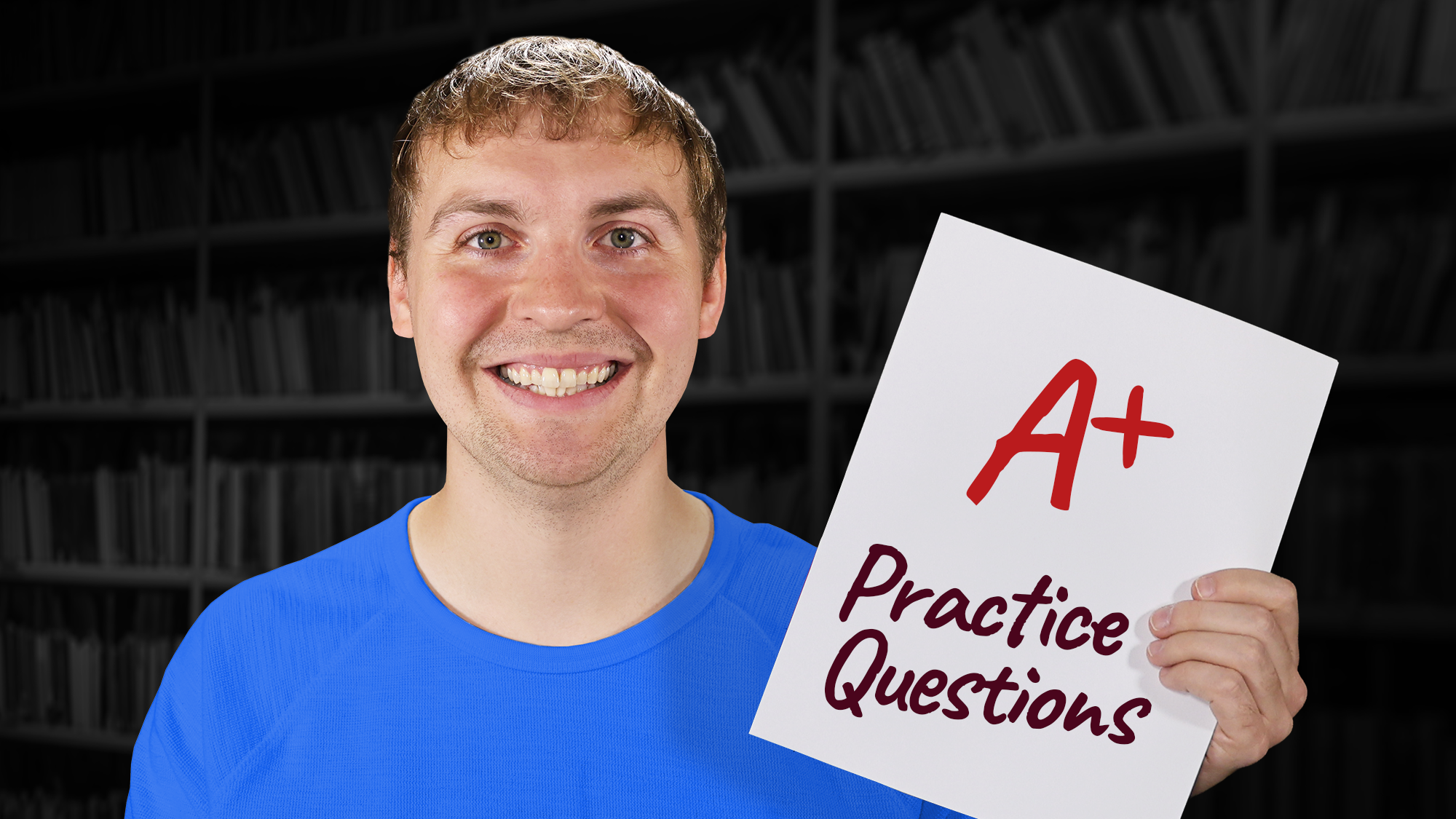
On the National Counselor Examination (NCE), the Counselor Preparation Comprehensive Examination (CPCE), or another counseling exam, you may come across questions related to diagnoses from the Diagnostic and Statistical Manual of Mental Disorders, fifth edition, text revision (DSM-5-TR). This video will help you understand Insomnia Disorder.
People often talk about insomnia, but do you know the diagnostic criteria for insomnia? Yes, there are actually criteria for this diagnosis! Insomnia Disorder, as it’s called, is one of the Sleep-Wake Disorders, and the topic of this video.
What is insomnia? People will often talk about insomnia in a casual sense. In general, people use insomnia to refer to sleeplessness, or having a bad night of sleep. That said, difficulty with sleep can reach the level of a diagnosis, which would be Insomnia Disorder.
What is Insomnia Disorder? To be diagnosed with Insomnia Disorder, a person must meet multiple criteria. There are reviewed below.
Quality & Quantity – As part of a diagnosis of Insomnia Disorder, one must have complaints related to the quality or quantity of their sleep. This means, they will either have sleep that is not restful or restorative, or they may not be getting enough sleep.
Sleep Difficulties – With Insomnia Disorder, the person may struggle with falling asleep, staying asleep, or waking up too early. Or, they may struggle with multiple of these.
Times per Week – While people might use insomnia to refer to a poor night of sleep, a diagnosis of Insomnia Disorder requires that the person struggle with sleep three or more nights per week.
Sleep Ability – Keep in mind, some people may struggle with sleep because they don’t have enough time to sleep! With Insomnia Disorder, the person must have the available time to get enough sleep. For example, if a person wants eight hours of sleep, but they don’t get home until midnight from one job, and then need to be up at 5 AM for their other job, they are only able to get five hours of sleep at the most. This would mean they probably don’t qualify for a diagnosis of Insomnia Disorder because of their work schedules.
Sleep-Wake Disorder – Insomnia Disorder is one of many Sleep-Wake Disorders in the Diagnostic and Statistical Manual of Mental Disorders (Fifth Edition, Text Revision). If the difficulties someone has with sleep are better explained by another sleep-wake disorder, that should be diagnosed instead of Insomnia Disorder.
Substance Use – If the sleep difficulties are better attributed to the effects of substance, then the diagnosis of Insomnia Disorder most likely shouldn’t be made. For example, if the person struggles with falling asleep because of cocaine use, an Insomnia Disorder diagnosis would likely not be appropriate at this time.
As a reminder, many of the diagnoses in the DSM have specifiers. These provide additional information related to diagnosis and how it is showing up for the person experiencing it. For Insomnia Disorder, there are six specifiers that can be used. Three are related to coexisting conditions, and the other three are related to the type. These are reviewed below.
Mental Health Disorders – The first specifier is “with mental disorder” which means the person has another mental health diagnosis they are experiencing that is impacting the Insomnia Disorder.
Medical Condition – Second is a similar specifier, “with medical condition”. This specifier is saying there is a medical condition that is influencing the Insomnia Disorder.
Sleep-Wake Disorder – Third is “with another sleep disorder” which is specifying that the person is experiencing Insomnia Disorder and another Sleep-Wake Disorder.
Episodic – The “Episodic” specifier means that the symptoms have lasted for more than one month, but less than three.
Persistent – A “Persistent” specifier signifies that Insomnia Disorder has lasted for three or more months.
Recurrent – If the person has had two or more episodes of Insomnia Disorder within a year, the “Recurrent” specifier can be used.



If you or someone you know are needing immediate mental health assistance, please call or text 988, contact a local emergency telephone number, or go to the nearest emergency room.
By interacting with this website and channel, this does not constitute a therapist/client relationship. This content is intended for the purposes of entertainment and mental health education.
View additional disclaimers and notices on our Disclaimers page.